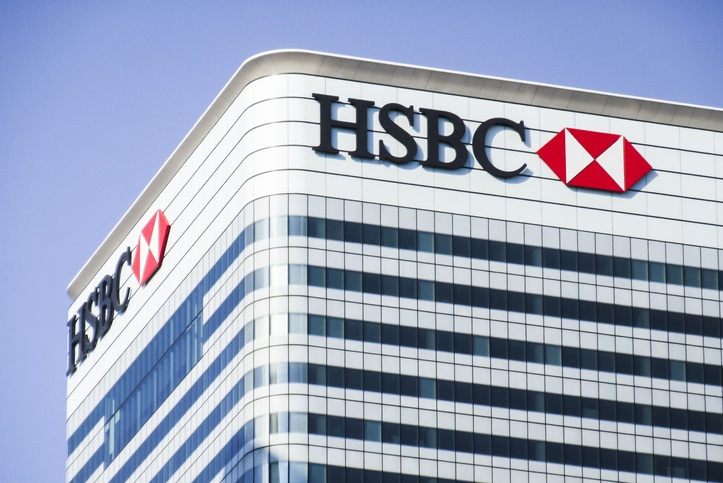HSBC profits slide: should investors sell?
Bank needs to navigate coronavirus, Brexit, lack of dividends and Chinese political wranglings.
3rd August 2020 10:56
by Richard Hunter from interactive investor
Bank needs to navigate coronavirus, Brexit, lack of dividends and Chinese political wranglings, writes our head of markets.

HSBC (LSE:HSBA) has done little to lift investors’ spirits as it brings the curtain down on what has been a costly half-year reporting season for banks in general.
Even though its Asian operations reported a pre-tax profit of $7.4 billion (£5.6 billion), the overall number for the group was $4.3 billion, representing a decline of 65% year-on-year. Also, despite a sturdy performance from the Global Banking and Markets division, overall revenues dropped by 9%, impeded by lower interest rates and generally adverse market conditions.
Given the nature of the business, HSBC has additional issues to face. The tense political situation in and around Hong Kong, and the deteriorating relations between the US and China, place additional burdens on the bank’s operations in the area, despite a tentative economic recovery in the region. From an investment perspective, the ongoing lack of a dividend removes another reason to consider the stock, while the outcome and details of the UK’s exit from the EU remains to be decided.
This is quite apart from the pandemic, which has blighted so many companies globally. Banks are directly in the firing line. HSBC has taken the decision to increase its credit impairment charge to $6.9 billion from $3 billion during the first quarter. It thinks the full-year figure will be between $8 and $13 billion.
- UK bank shares to buy, sell and hold
- Lloyds fearing the worst as default charge soars
- Barclays makes big money even in a pandemic
Meanwhile, many of the key metrics have also suffered, with Net Interest Margin falling to 1.43%, including a particular deterioration in the second quarter to 1.33%. The cost/income ratio worsened to 61.8% and the return on equity became a slow trickle.
Any positives come from the bank’s famously robust balance sheet, where the capital cushion has increased once more to 15.1%, from 14.6% at the first quarter update.
The liquidity coverage ratio is more than adequate at 148%, and bearing down on costs has resulted in a 5% reduction in adjusted operating expenditure. On a constant currency basis, lending for the period increased by $12 billion, with deposits rising by $133 billion as customers largely chose to park their cash, in turn resulting in lower activity and income for the bank.
Meanwhile, the assistance which has become a dominant theme in the reporting season against the pandemic backdrop continued, with HSBC providing some $27 billion of personal customer relief, amid around 700,000 payment holidays on loans, credit cards and mortgages.
Banks in general are much better prepared for this economic onslaught than during the financial crisis of more than a decade ago. For HSBC, in particular, any early economic recovery in the Asian region would play into its hands given its established presence and reputation.
Even so, the immediate outlook is bleak and investors are gravitating towards any of the banks with more obvious prospects, as opposed to those in full firefighting mode.
- Bank shares, gold and a litmus test for UK growth
- Take control of your retirement planning with our award-winning, low-cost Self-Invested Personal Pension (SIPP)
Perhaps not surprisingly, HSBC has many rivers to cross given its global economic reach, with few signs of optimism yet. The shares have fallen 48% over the last year, as compared to a drop of 20% for the wider FTSE 100, and including a decline of 38% in the last six months alone.
The stock is currently out of favour as an investment destination, and the market consensus of the shares as a ‘sell’ is unfortunately likely to remain in place for the time being.
These articles are provided for information purposes only. Occasionally, an opinion about whether to buy or sell a specific investment may be provided by third parties. The content is not intended to be a personal recommendation to buy or sell any financial instrument or product, or to adopt any investment strategy as it is not provided based on an assessment of your investing knowledge and experience, your financial situation or your investment objectives. The value of your investments, and the income derived from them, may go down as well as up. You may not get back all the money that you invest. The investments referred to in this article may not be suitable for all investors, and if in doubt, an investor should seek advice from a qualified investment adviser.
Full performance can be found on the company or index summary page on the interactive investor website. Simply click on the company's or index name highlighted in the article.